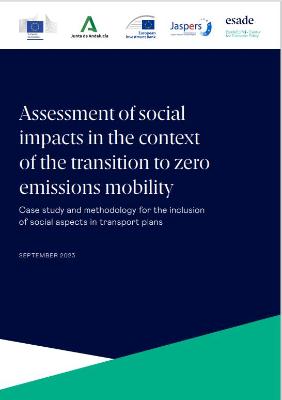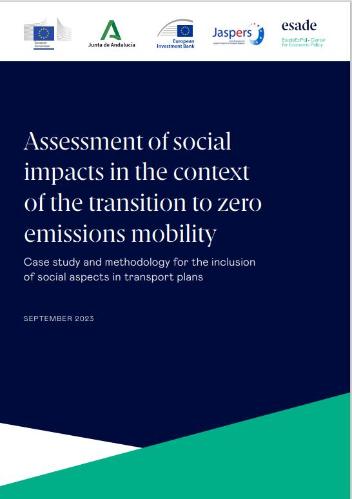
Description
The urgent need for decarbonization has broadened the scope of transportation policy from improving network conditions, such as reducing congestion or improving accessibility, to include sustainability considerations, promoting zero-emission mobility, and climate change adaptation measures. While these measures are critical in reducing the carbon footprint of the transportation sector, they can also have unintended social impacts that may disproportionately affect certain populations. Therefore, the inclusion of social criteria in the design of transport plans takes on particular significance.
This new case study can support policymakers and planners by offering concrete illustrations on how to address social aspects within the context of the decarbonization of the transport sector. The research, conducted by the Economic Policy Center of ESADE (EsadeEcPol), is the outcome of the collaboration between the Regional Government of Andalusia and JASPERS.
The paper summarizes and reviews key transport measures at European and national level, which are relevant for transport planning in metropolitan areas and that conform the strategic framework for the Sustainable Urban Mobility Plan of the Metropolitan Area of Granada (Spain). It also includes an initial screening of the traditional types of measures that can be proposed in such a plan.


